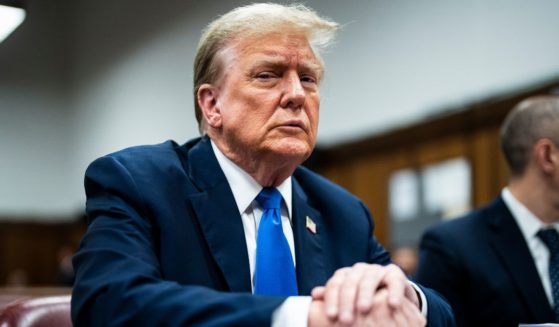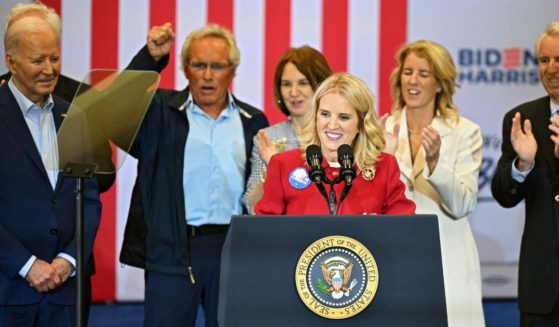DeSantis Just Cracked Down on COVID Restrictions in a Major Way
Florida Gov. Ron DeSantis moved to suspend all remaining COVID-19 restrictions imposed by communities across his state, signing into law on Monday freshly passed legislation giving him sweeping powers to invalidate local emergency measures put in place during the pandemic — including mask mandates, limitations on business operations and the shuttering of schools.
In addition to signing the law, which goes into effect July 1, the Republican governor also signed a pair of executive orders to move more quickly, meaning that existing coronavirus measures enacted by local governments — such as requiring masks — would be abolished immediately.
“We don’t know what’s going to happen in the future,” DeSantis said, “but I think this creates a structure that’s going to be a little bit more respectful, I think, of people’s businesses, jobs, schools and personal freedom.”
Some municipalities have already lifted restrictions on their own. But Miami-Dade County, for example, still requires masks in all indoor public spaces and outdoors if people are within 10 feet (about three meters) of each other. The governor’s executive order now rescinds those rules. However, private businesses — including theme parks and hospitals — can impose restrictions on their own.
Some mayors, particularly those aligned with the Democratic Party, have decried Republican-led pre-emptions as a power grab against local government’s ability to control a potential resurgence of the coronavirus, while also claiming their ability to respond to future public health emergencies is being restricted.
“It feels like he’s spiking the ball on the 10-yard line,” said Miami Beach Mayor Dan Gelber, whose city is within a county that was among the hardest hit by the coronavirus outbreak. “He’s been following political ideology more than science during this whole pandemic.”
St. Petersburg Mayor Rick Kriseman suggested that it was thanks to local governments that the death toll wasn’t higher.
To be clear, cities like St. Pete, Tampa, Orlando, Miami and Miami Beach, saved Florida and the governor’s behind throughout this pandemic. Can you imagine if each city had been led by Ron DeSantis? How many lives would have been lost? What would our economy look like today?
— Rick Kriseman (@Kriseman) May 3, 2021
“To be clear, cities like St. Pete, Tampa, Orlando, Miami and Miami Beach, saved Florida and the governor’s behind throughout this pandemic. Can you imagine if each city had been led by Ron DeSantis? How many lives would have been lost? What would our economy look like today?” Kriseman tweeted.
DeSantis has urged Floridians to get vaccinated, while also becoming a nationally prominent voice against mask requirements and other mandates that conservatives believe infringe on individual liberty.
To date, more than 2.2 million Floridians have been infected with the disease. More than 35,000 have died, but in per capita deaths Florida has fared better than most states. It has seen 166 per 100,000 as compared with the highest rate, in New Jersey, of 287 per 100,000.
The law codifies much of the actions DeSantis had already taken, including pre-empting local governments from enforcing mask mandates, but it also would give the governor — DeSantis and those after him — broad authority during future public health crises to set aside local edicts that do not conform with those issued by the state.
Keeping such measures in place undermines confidence in the coronavirus vaccines, the governor said at a news conference in St. Petersburg.
“Folks that are saying that they need to be policing people at this point,” DeSantis said, “are saying you don’t believe in the vaccines, you don’t believe in the data, you don’t believe in the science.”
The new law would also ban businesses from requiring patrons to show proof of vaccinations in order to get service.
The ban was already in place under an executive order he signed in late March. That order also barred government entities from issuing so-called “vaccine passports.”
The impending law directs state health officials to draft a public health emergency management plan to serve as a template for future outbreaks. It also requires state officials to keep at the ready a supply of protective equipment.
The Western Journal has reviewed this Associated Press story and may have altered it prior to publication to ensure that it meets our editorial standards.
Truth and Accuracy
We are committed to truth and accuracy in all of our journalism. Read our editorial standards.












